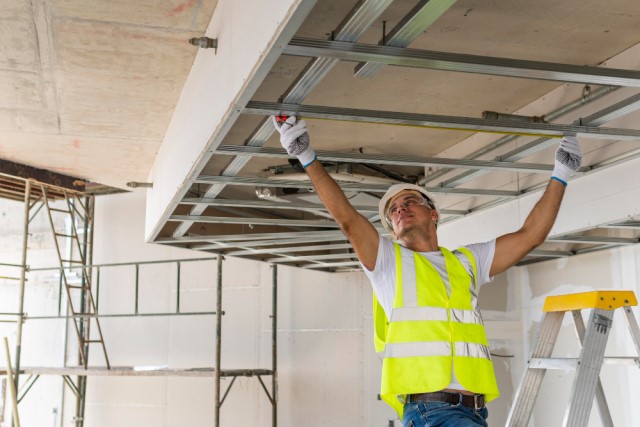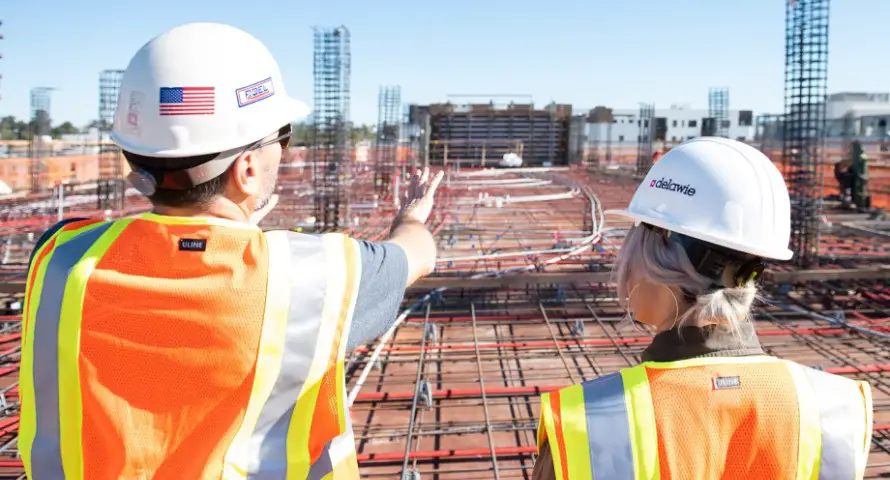People with disabilities usually encounter many difficulties when looking for sustainable employment.
And when they eventually become employed, they tend to face discrimination and neglect from employers and their co-workers.
One of the disabilities that’s mostly hit by this employment crisis has to do with those suffering from deafness or hearing impairment.
In as much as there are many jobs that a deaf person can conveniently do, there are equally other jobs that they won’t be able to comfortably do as a result of their disability.
Over the years, there has been an ongoing debate about whether a deaf person can work on a construction site or not.
Some of the questions asked include: how ideal is the job of a construction site for a deaf person? Can a construction job guarantee the safety of a deaf person?
You’ll learn the answers to these questions as you read on.
You’ll also get to know about the possibilities of a deaf person working on a construction site and how safe it is for them.
Table of Contents
- Is it Possible for a Deaf Person to Work on a Construction Site?
- How Can a Deaf Person Safely Work on a Construction Site?
- Benefits of Hiring a Deaf Person on a Construction Site
Is it Possible for a Deaf Person to Work on a Construction Site?
The construction industry is one of the most competitive industries. It houses many professionals who work collectively to complete a construction project.
Oftentimes, some companies give room for inclusive participation of all professionals, regardless of the kind of disability they might suffer from. That’s why it’s very possible to find deaf workers among the people working on a construction site.
Just like the hearing workers, deaf workers are qualified professionals like engineers, architects, electricians, plumbers, AutoCAD drafters, accountants, bricklayers, and so on.
Many deaf workers are experts in their fields and can do what hearing workers in the same field can do. The only exception is that deaf workers on a construction site are given special attention to ensure their safety on site.
Hence, a deaf person can work on a construction site as long as the various safety procedures or protocols are duly observed by the workers.
The company must put adequate measures in place to avoid any form of mishap or accident that the deaf workers might likely encounter as they work.
Related: 10 Surprising Jobs that a Deaf Person Cannot Do
How Can a Deaf Person Safely Work on a Construction Site?

It is the responsibility of the employer to guarantee the safety of deaf workers by providing various resources that will enable them to communicate effectively and diligently perform their duty on-site.
Some of the resources that can be put in place to help deaf workers succeed in their work include the following:
Creating familiarity among workers
It is the responsibility of the employer to create familiarity among the deaf and hearing workers. The workers must be enlightened about how they can effectively communicate with each other through verbal and written mediums to help give room for inclusive participation.
The hearing workers must also be given adequate orientation about how they can work with their hearing-impaired co-workers and the ideal way they can communicate with them while on site.
Employers are equally meant to ensure that deaf workers are not victimized or discriminated against at work by their colleagues because of their disabilities.
Therefore, employers must make sure that the hearing workers are enlightened about how being hearing impaired does not limit a worker’s productivity and competency.
Provision of visual aids and other resources during meetings
Deaf workers should be adequately put into consideration during meetings.
Employers must make provision for visual aids, written materials, presentation handouts, among other resources for the deaf workers before the commencement of the meeting.
When employers do this, they help to carry everyone along as the meeting progresses.
In addition, employers must ensure that everyone maintains decorum and participates one after the other so as not to confuse the deaf workers when trying to identify who the speaker is.
Related: Is It Legal for a One-armed Person to Drive? (Answered)
Practical emergency announcement
A lot of risks come with working on a construction site if adequate safety measures are not put in place. Therefore, employers must ensure that flashing lights accompany any alarm that sounds during emergencies.
All new employees must be trained on emergency escape routes during orientation to enable them to escape to safety in times of emergency.
There should be text and email notifications that can be sent to all workers to announce the emergency to ensure that everyone is notified, irrespective of the kind of disability they might be suffering from.
Video training must have captions
Employers must make sure that all videos used for the training process come with a caption or subtitle.
This will ensure that the deaf workers are not left behind and that they are carried along as the training progresses.
Another way to promote adequate inclusivity of the deaf workers is to give them the training materials (either soft or hard copies) that will help them to thrive well at work. This is very crucial if the workers are new to the job.
Related: Can I be a Foster Parent If I Am on Disability? (Answered)
Benefits of Hiring a Deaf Person on a Construction Site

Many employers tend to get discouraged about hiring a deaf person for their construction jobs due to the misconception that deaf people might be less productive.
However, a survey has shown that deaf workers are more likely to be productive and industrious at work, even more than hearing workers.
Below are some of the benefits of hiring a deaf person for a construction job:
Diversity at workplace
Apart from inclusivity, employing a deaf worker helps to create and promote diversity in the workplace, where the best talents are employed, regardless of their disabilities.
It also promotes a supportive work environment that benefits both the employer and employees in the long run. In addition, productivity in the construction site becomes higher because a survey shows that deaf workers are known to be loyal and reliable at work.
Tax credit for employers
In some countries, employers tend to enjoy a tax credit of up to $5,000 if they provide accommodation for their employees who suffer from hearing impairment.




